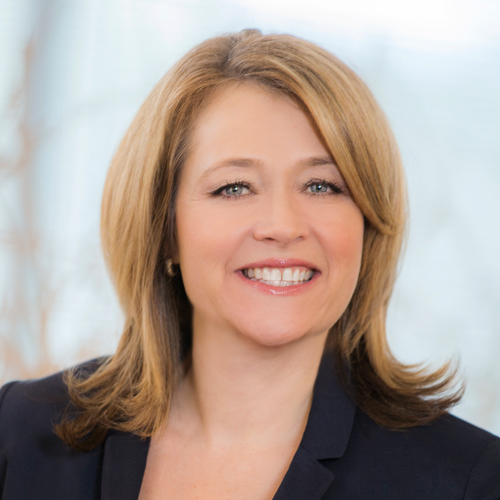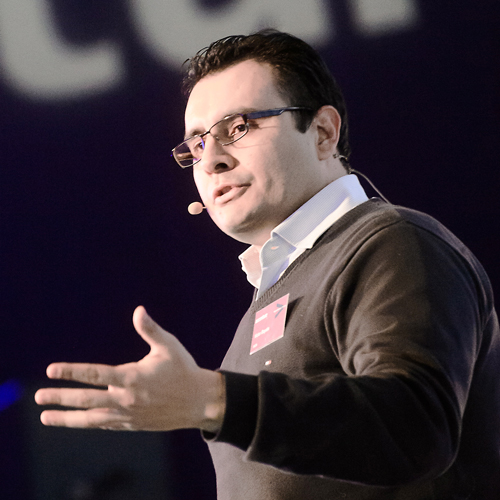The Internet of Things (IoT) is now well beyond the theoretical, touching our lives in all kinds of ways. On a very broad scale we see IoT working in major cities like Chicago, where a matrix of buildings and infrastructure make an ideal testing ground for digital technologies—applied large-scale.
And while implementing the most advanced technologies to city infrastructure objectively makes sense, real-time issues are so broad and machines and systems so complex that a great deal of public-to-private cooperation is needed to bring IoT to fruition. This is why four tech companies—Accenture, Commonwealth Edison, Microsoft, and Siemens—joined UI LABS in 2013 to launch UI LABS–City Digital, so named for the university-industry partnership that pulls ideas and capabilities together to optimize how Chicago’s infrastructure will work in the 21st century.
As Siemens’s chief city officer, Judy Martinez-Faye is intimately involved in the effort. Her role is to forge municipality-related partnerships and find holistic solutions.
The born-and-raised Chicagoan and daughter of first-generation immigrants first cut her business teeth as a teen helping out in her father’s auto-body shop. Given the complexity of the City Digital effort’s issues—where technology meets heavy construction, public bureaucracy, and a good dose of politics—it only makes sense that Martinez-Faye would be the right person for the job.
“I’m one of 80 Siemens people around the globe focused on a specific city,” says Martinez-Faye, describing how the company is focusing on the megatrend of increasing urbanization. “Urbanization will be manageable if cities come out ahead of problems. At their core, cities must secure the public safety and welfare of their citizens. We help them do this in four main areas: water and wastewater, transportation, structures, and energy use.”
The former prosecutor, government lobbyist, and city administrator is an unabashed booster of Chicago. She believes in trying outlandish solutions, even in an urban environment where high-profile problems often overshadow its numerous successes.
Hers is, in fact, a very international position. The network of Siemens chief city officers often shares ideas and solutions for cities around the globe. For example, Martinez-Faye recently collaborated with a colleague in Zug, Switzerland, on Chicago’s Lakeside Development, a 600-acre, next-generation brownfield-site development that will eventually house a population of 50,000 people. A Swiss vendor had useful ties to Lakeside, which would benefit the Siemens-Chicago relationship. Similarly, another Siemens peer in Vienna, Austria, is currently consulting with the Chicago office about municipal sludge treatment, sharing results already tested in other cities.
While Martinez-Faye has no direct reports, she coordinates the work of 25 people in Chicago. They collaborate closely to identify the city’s “pain points” and to devise solutions that might involve multiple divisions.
“Urbanization will be manageable if cities come out ahead of problems.”
Judy Martinez-Faye
Collaboration is one of her key strengths. With projects as big as updating the municipal water system, or the Chicago area’s public-transportation network—which carries about 2 million passengers daily—the many tentacles of Siemens, the city, and other vendors can get tangled. Her goal is to simplify things for the customer and optimize outcomes.
And should it be surprising that the former criminal prosecutor also knows a few things about conflict resolution? “I’m the first person to get a call when there are problems,” she says.
But listening skills are something Martinez-Faye has been developing her whole life. She relates how even as a child she had to help make sure her Spanish-speaking parents weren’t taken advantage of. Martinez-Faye understood early on that education was the ticket to much better control of one’s circumstances.
As a trial attorney, she needed to interpret where jurors’ heads were at, and now with Siemens she has to negotiate between business and municipal interests and what the engineers—most of them male—are really telling her. “I’m not an engineer and I’m a Latina—I’ve had to build bridges to get people to work with me,” she says.
Siemens
Headquartered: Berlin and Munich, Germany
Founded: 1847
Number of Employees: Approximately 362,000 worldwide
Annual Revenue: 71.9 Billion Euro (2014)
About: Siemens is a German multinational conglomerate and one of the largest engineering companies in the world. The principal divisions of the company are industry, energy, health care, and Infrastructure & cities.
Perhaps what drives her to do this work is her commitment and belief in Chicago. “With 178 years in the making, Chicago has a great palette of infrastructure to work with,” she says. “Buildings are dense and diverse, old next to new. Water is abundant, given our location next to Lake Michigan. Chicago is home to the world’s largest pumping station and a very large water-sanitary district. Transportation is diverse with rail—passenger and freight—cars, buses, trains, airplanes, and bikes. And Chicago is a leader in optimizing energy use and being sustainable in both the public and private sectors.”
All of which hearkens back to UI Labs–City Digital, where Siemens and other consortium participants are working on projects like predictive data analytics in infrastructure. The goal is to know what to fix before it’s broken—something this Latina learned long ago, working in her father’s auto-body shop.

